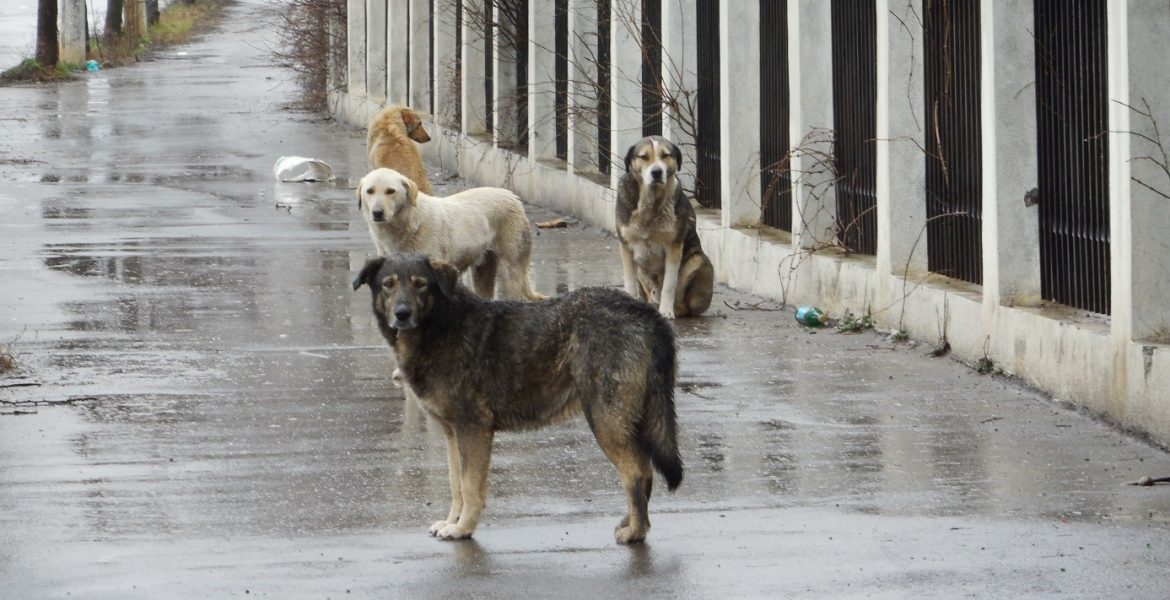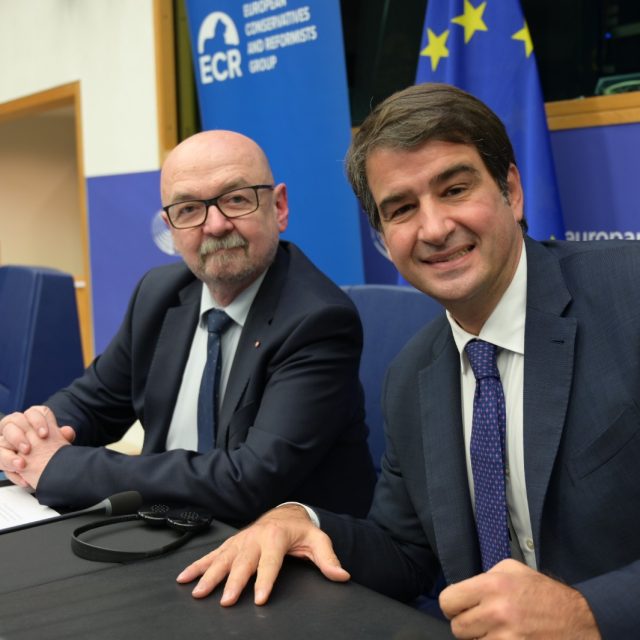At the Brussels premiere of ‘A Dog’s Life – The Homeless Dogs of Romania’ in the European Parliament, viewers were exposed to the shocking conditions that thousands of dogs have to endure behind the closed door of shelters in Romania, writes Martin Banks.
The film questions why the Romanian government is not dealing with this repeat offense as Romania prepares to take on the EU Presidency in 2019.
This is the second in a series of documentaries uncovering the plight of stray dogs in Europe. Today, MEPs and stakeholders were invited to reflect through a 30 minute film, on the inhumane conditions thousands of dogs kept Romanian shelters have to endure.
British actor and animal advocate, Peter Egan and veterinary surgeon Roger Bralow along with British filmmaker Maria Slough, travelled to Romania to meet the stray dogs of the country. As such, the film highlights the sheltering systems in place that either institutionalises or leaves the suffering of these dogs unaddressed.
Stray dogs and feral cats face serious animal welfare issues, lacking basic veterinary care, food and protection.
Stray animal populations also raise public health and safety concerns primarily due to the risk of transmission of diseases to humans (e.g rabies) and injury caused by the animals’ potentially aggressive behaviour.
The situation is worsened by low levels of social empathy and public awareness about this issue. The film allows viewers to reflect on the need to involve communities and local stakeholders to work towards the humane treatment of stray animals.
“This event is a new attempt to draw attention to the cruel mass killings of stray dogs in Romania. The EU should finally exert its influence for a humane and modern population management that considers animals as sentient beings. I am looking forward to pointing out the dog massacre in Romania together with Eurogroup for Animals, well-known British actor Peter Egan and filmmaker Maria Slough ” said MEP Stefan Eck, co-organiser of the film screening.
Reineke Hameleers, Director of Eurogroup for Animals, who also co-organises the event, added “The majority of the stray dogs in Europe are abandoned dogs, they used to have an owner.
Promoting responsible dog ownership and tackling issues at its root causes is therefore key to significantly reduce the numbers of stray dogs and the incidence of diseases transmitted from animals to humans. It is dreadful that it takes the EU and Member States so much time to adopt an effective approach that respects not just public health, but the health and well-being of the all too often forgotten animals condemned to a life of neglect and misery . During the event, Peter Egan shared his belief that this situation is related not just to animal welfare, but goes deeper, to the core of European societies.
“It seems to me that the idea of Animal welfare, throughout not only Eastern Europe but also in the UK, is often predicated by the parallel need for Human Welfare.
I believe these concepts are ethically and morally interdependent” he said. The panellists looked at the factors that influence the size of stray animal populations, the root causes of stray overpopulation and the possible long-term solutions.
While the streamlining of neutering and vaccination plays an important role in tackling the issue across the EU, panellists stressed that a focus on human behavioural change is equally important. Breeders, sellers and buyers have to be aware of their responsibilities though targeted campaigns.
Mandatory identification and registration at the EU level are necessary to ensure proper legislative enforcement and to allow the tracking on the number of the stray dog populations.
During the discussion after the film screening, panelists looked at the ways forward – they heard from local caretakers about the most effective stray population management strategies and why the EU should show leadership in streamlining results through Europe-wide guidelines.
Although more work needs to be done, things are moving in the right direction. For example, in 2014 the World Organisation for Animal Health (OIE) launched the Regional stray dog Roadmap for the Balkans.
All Balkan countries, including Romania, agreed to be fully compliant with OIE Chapter 7.7. on stray dog population control by 2025, a project financially supported by the EU.
The aim is to develop national roadmaps, monitor their situation on a regular basis, and reduce the stray dog population with humane methods.
MEP’s present from the Intergroup on the welfare and conservation of animals called on Romania, at the wake of their first-ever presidency role in the European Union, to ensure their national roadmap is alive, effectively rolled out and works towards humane stray dog population management.
The Author, Martin Banks, is News Editor for EU Political Report.




